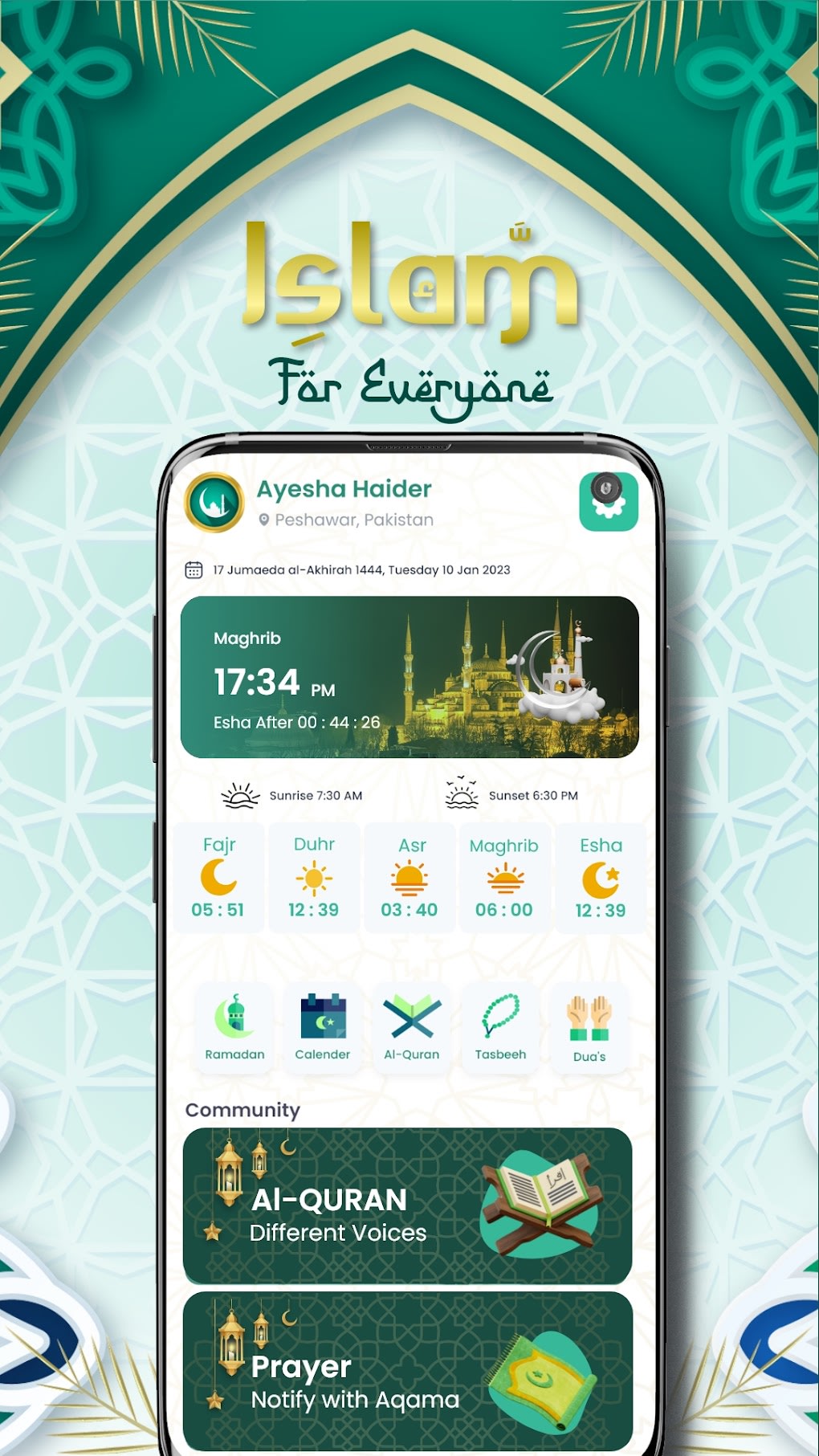Understanding The Essence Of Iqama In Islam: A Comprehensive Guide
Let’s dive straight into the heart of Islamic teachings and explore one of its most fundamental concepts—iqama. Whether you're a devout Muslim or someone curious about the faith, understanding iqama is essential. It’s more than just a word; it’s a spiritual pillar that holds immense significance in the lives of Muslims worldwide.
Iqama isn’t just about prayer timings or rituals; it’s a profound concept that connects Muslims to their Creator in a deeply personal way. In this article, we’ll unpack what iqama means, its role in Islam, and how it impacts daily life. So, grab a cup of tea, get comfy, and let’s embark on this enlightening journey together.
Now, you might be wondering why we’re focusing so much on iqama. Well, it’s simple—this concept isn’t just a religious obligation; it’s a spiritual anchor that brings peace, structure, and meaning to life. By the end of this article, you’ll have a clear understanding of what iqama truly represents and how it can enhance your connection with Allah.
What Exactly is Iqama in Islam?
Let’s break it down. Iqama refers to the call to prayer that signals the start of the congregational prayer in Islam. It’s like the starting whistle for a spiritual workout, reminding Muslims to pause their worldly affairs and focus on their relationship with God. Think of it as a divine alarm clock that resets your spiritual clock five times a day.
In simple terms, when the iqama is called, it’s time to drop everything and head to the mosque—or wherever you’re praying—and stand in line with fellow believers. It’s a moment of unity, humility, and devotion. And guess what? This isn’t just about following rules; it’s about creating a sacred space in your day for reflection and gratitude.
Why is Iqama Important in Daily Life?
Iqama isn’t just a religious formality—it’s a lifeline. Imagine your day without any structure or reminders to connect with the Divine. Sounds chaotic, right? That’s where iqama steps in. It provides a rhythm to your day, ensuring that you never lose sight of what truly matters.
- Watch New Movierulz 2023 Telugu Online Free
- Hickeys Cancer The Truth Can A Hickey Really Cause Cancer Debunked
- It strengthens your faith by keeping you grounded in prayer.
- It fosters a sense of community among Muslims.
- It reminds you of your purpose and priorities.
And let’s not forget, the beauty of iqama lies in its simplicity. It’s a call to action that anyone can respond to, regardless of their background or circumstances.
Key Elements of Iqama: Breaking It Down
Now that we’ve covered the basics, let’s dive deeper into the key elements of iqama. Think of it as a blueprint for spiritual success. Here’s what you need to know:
The Role of Iqama in Congregational Prayer
Congregational prayer, or salah jama'ah, is a cornerstone of Islamic worship. Iqama plays a crucial role in this setting by signaling the beginning of the prayer. It’s like the starting gun in a race—it gets everyone moving in the same direction.
When the iqama is called, Muslims gather in rows, shoulder to shoulder, creating a beautiful tapestry of unity. This act of coming together not only strengthens individual faith but also builds a sense of belonging and solidarity among the community.
How Iqama Differs from Adhan
Many people confuse iqama with adhan, but they’re actually quite different. While adhan is the first call to prayer, announcing that it’s time to prepare for salah, iqama is the second call, signaling the actual start of the prayer.
Think of adhan as the invitation and iqama as the RSVP. Both are essential, but they serve different purposes. Adhan prepares your heart and mind, while iqama calls you to action.
Historical Context of Iqama in Islam
To truly understand iqama, we need to look back at its historical roots. This practice dates back to the time of Prophet Muhammad (peace be upon him), who established the importance of congregational prayer and the calls that accompany it.
In the early days of Islam, the Prophet himself would lead prayers, and iqama was used to ensure everyone was ready and in place. Over time, this tradition has been passed down through generations, remaining a vital part of Muslim life.
The Evolution of Iqama Through the Centuries
While the core concept of iqama has remained unchanged, its implementation has evolved over the years. From simple verbal calls in small communities to the use of loudspeakers in modern mosques, technology has played a role in amplifying its reach.
However, the essence of iqama remains the same—a call to prayer that transcends time and space, connecting Muslims across the globe in a shared act of worship.
Practical Tips for Observing Iqama
Now that we’ve covered the theory, let’s talk practical tips. How can you make the most of iqama in your daily life? Here are a few suggestions:
- Make it a priority to attend congregational prayers whenever possible.
- Set reminders on your phone or use prayer apps to ensure you don’t miss the iqama.
- Reflect on the meaning of each prayer and use the time between adhan and iqama for personal supplications.
Remember, observing iqama isn’t just about following a routine; it’s about nurturing your soul and deepening your connection with Allah.
Common Misconceptions About Iqama
There are a few misconceptions about iqama that we need to address. Some people think it’s just a formality or that it’s only relevant for those who attend the mosque regularly. But that’s not true. Iqama is for everyone, regardless of their level of practice or location.
Another misconception is that you have to be perfect to participate in congregational prayers. Newsflash: nobody’s perfect, and that’s okay. What matters is your intention and effort to connect with Allah through prayer.
The Spiritual Benefits of Iqama
Let’s talk about the good stuff—the spiritual benefits of observing iqama. When you make iqama a priority in your life, you open the door to countless blessings. Here are just a few:
- Increased mindfulness and awareness of Allah’s presence in your daily life.
- Strengthened faith and a deeper sense of purpose.
- Improved mental and emotional well-being through regular acts of worship.
And let’s not underestimate the power of community. Participating in congregational prayers through iqama connects you with like-minded individuals who share your values and aspirations.
How Iqama Impacts Your Mental Health
Did you know that observing iqama can have a positive impact on your mental health? Studies have shown that regular prayer can reduce stress, anxiety, and depression. It’s like hitting the reset button on your mind and soul.
By setting aside time for prayer, you create a sacred space for reflection and self-care. This practice not only benefits your spiritual life but also enhances your overall well-being.
Challenges and Solutions in Observing Iqama
Let’s face it—observing iqama isn’t always easy, especially in today’s fast-paced world. Between work, family, and other commitments, it can be challenging to make time for prayer. But don’t worry; we’ve got some solutions for you.
Overcoming Common Obstacles
Here are a few tips to help you overcome common obstacles in observing iqama:
- Plan your day around prayer times to ensure you don’t miss any.
- Find a local mosque or prayer group for support and encouragement.
- Use prayer reminders and apps to stay on track.
Remember, consistency is key. Even if you miss a prayer or two, don’t give up. Keep trying, and Allah will reward your efforts.
Conclusion: Embrace the Power of Iqama
In conclusion, iqama is more than just a call to prayer—it’s a lifeline that connects Muslims to their Creator and community. By observing iqama regularly, you can strengthen your faith, improve your mental health, and create a more meaningful life.
So, what are you waiting for? Take the first step today and make iqama a priority in your life. Share this article with friends and family, and let’s work together to build a stronger, more connected Muslim community.
And don’t forget to leave a comment below and let us know how iqama has impacted your life. Your story could inspire others to take action and deepen their spiritual journey.
Table of Contents
- What Exactly is Iqama in Islam?
- Why is Iqama Important in Daily Life?
- Key Elements of Iqama: Breaking It Down
- Historical Context of Iqama in Islam
- Practical Tips for Observing Iqama
- The Spiritual Benefits of Iqama
- Challenges and Solutions in Observing Iqama
- Conclusion: Embrace the Power of Iqama



Detail Author:
- Name : Daisy Lesch
- Username : anais63
- Email : jeramie10@hills.com
- Birthdate : 1996-10-22
- Address : 56621 Zulauf Radial West Domenick, SD 61972-1360
- Phone : 1-817-968-3383
- Company : VonRueden, Graham and Dooley
- Job : Stone Sawyer
- Bio : Modi ducimus dolorem perspiciatis error repellat porro voluptas. Doloremque recusandae dolores quod ut enim.
Socials
twitter:
- url : https://twitter.com/bupton
- username : bupton
- bio : Velit ducimus exercitationem perferendis labore. Labore asperiores perspiciatis possimus. Est nihil magnam laudantium nisi qui reiciendis vel.
- followers : 1712
- following : 97
tiktok:
- url : https://tiktok.com/@uptonb
- username : uptonb
- bio : Deserunt aut veniam minima voluptatem sapiente atque.
- followers : 335
- following : 2591
linkedin:
- url : https://linkedin.com/in/brettupton
- username : brettupton
- bio : Dolore itaque ipsam et et enim qui illo.
- followers : 5969
- following : 2221
instagram:
- url : https://instagram.com/brett5510
- username : brett5510
- bio : Vel quisquam et et velit cumque et. Odit doloribus est aspernatur.
- followers : 4953
- following : 1202
facebook:
- url : https://facebook.com/upton1988
- username : upton1988
- bio : Sit porro laboriosam consequatur voluptatem excepturi doloribus tempore amet.
- followers : 829
- following : 2474